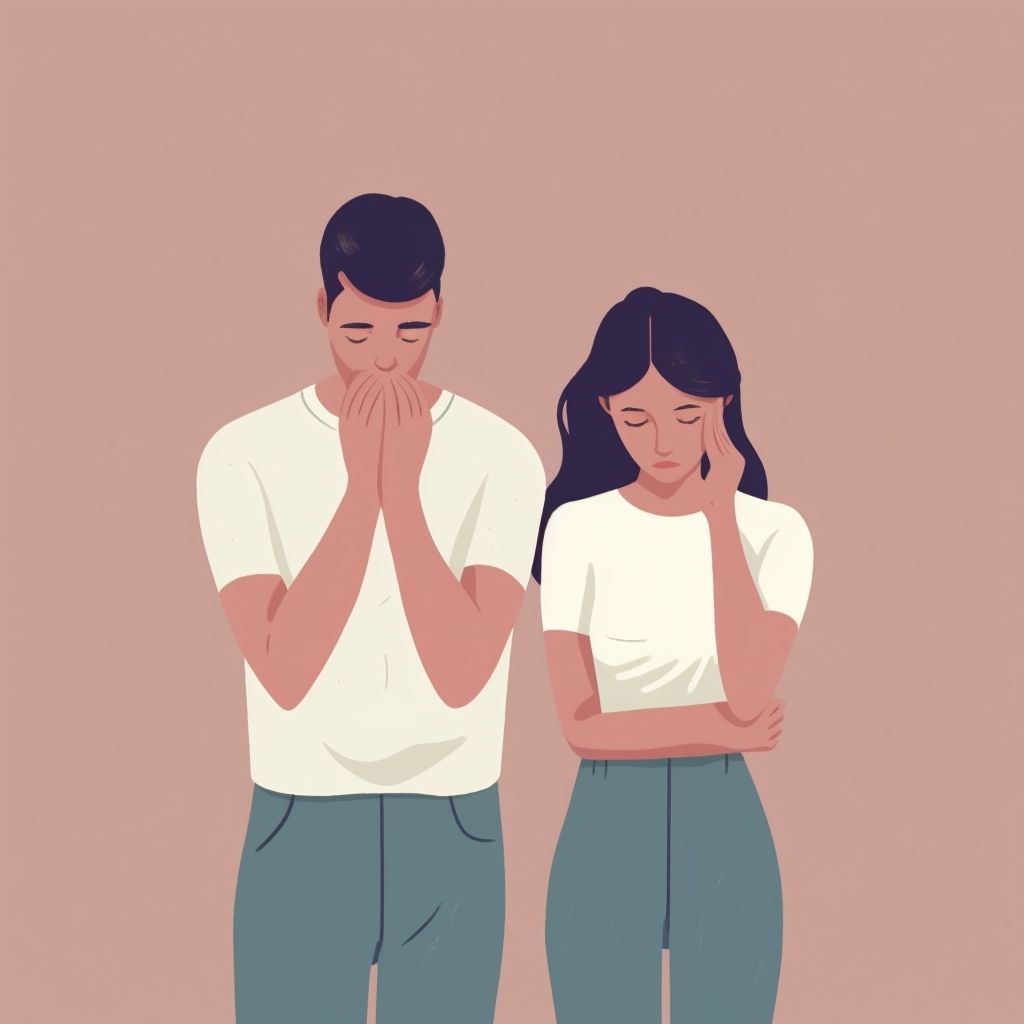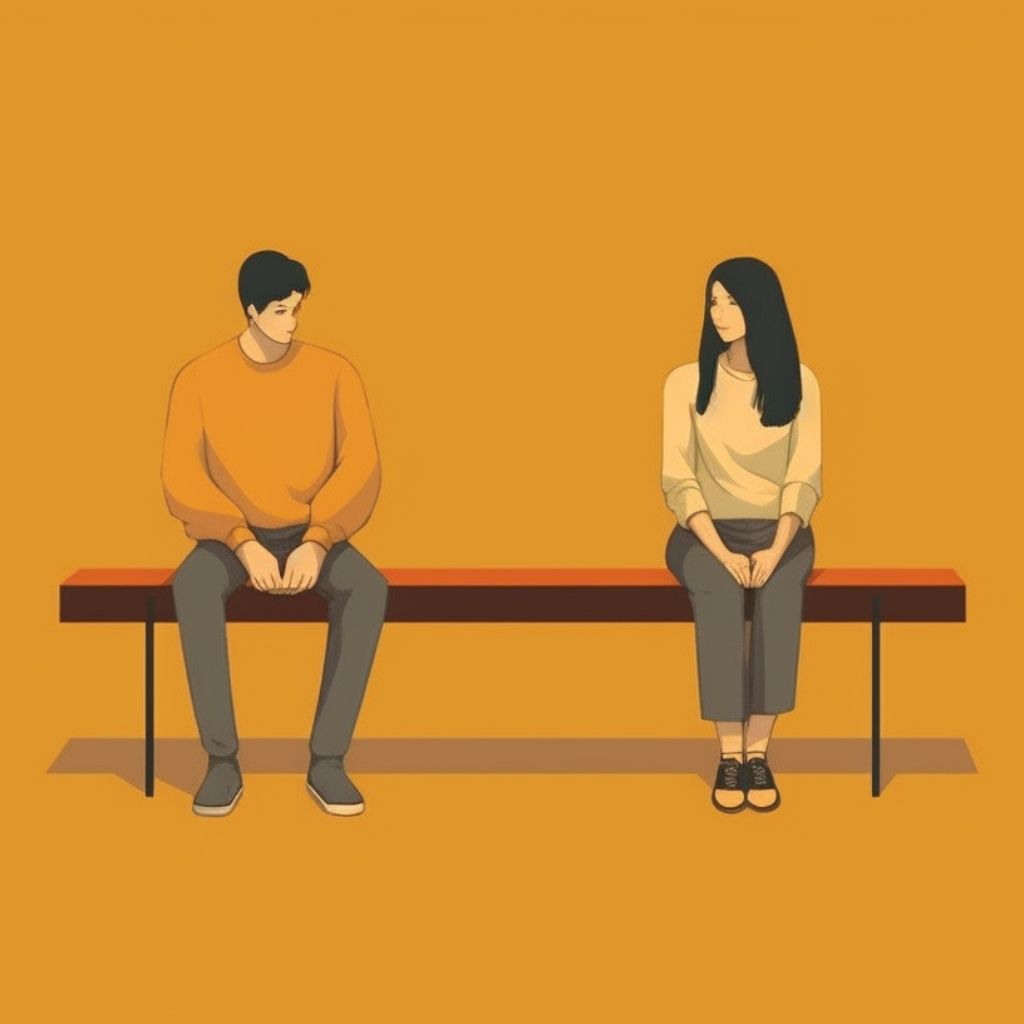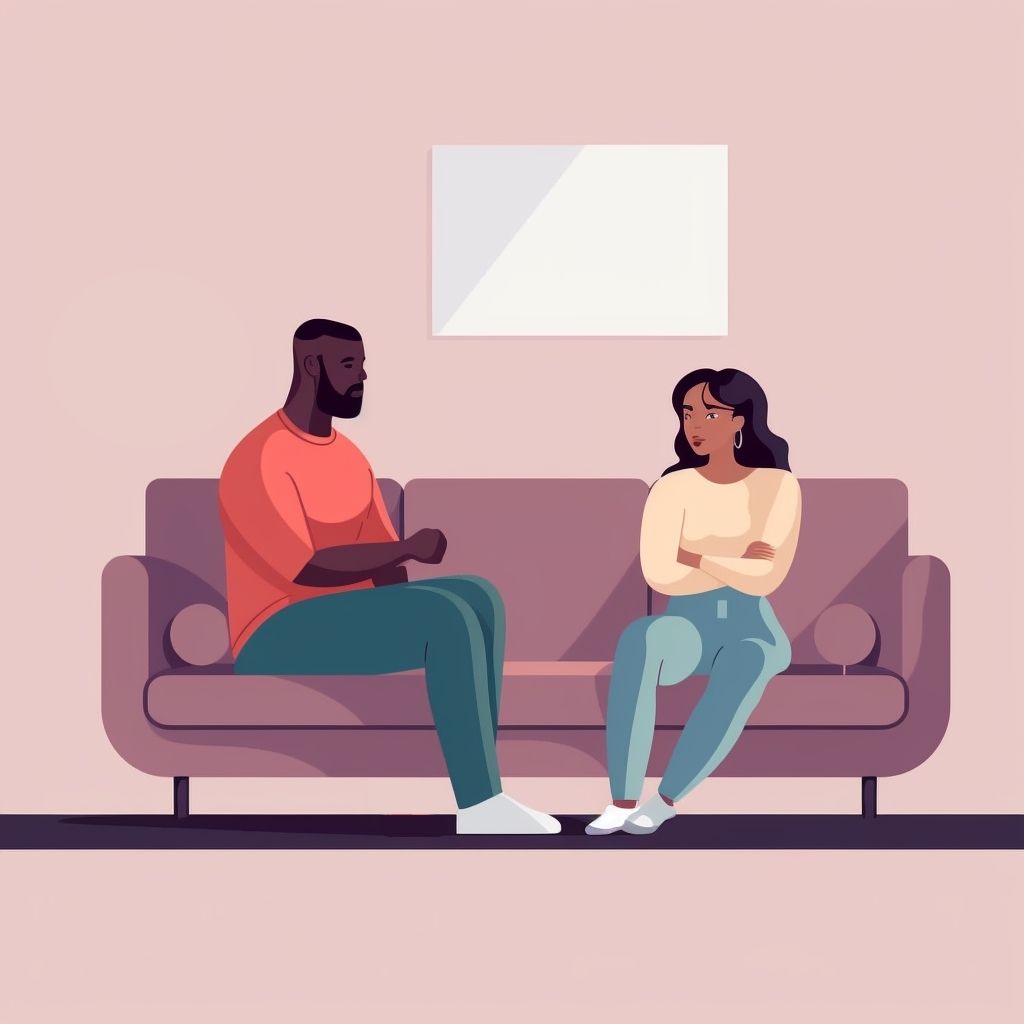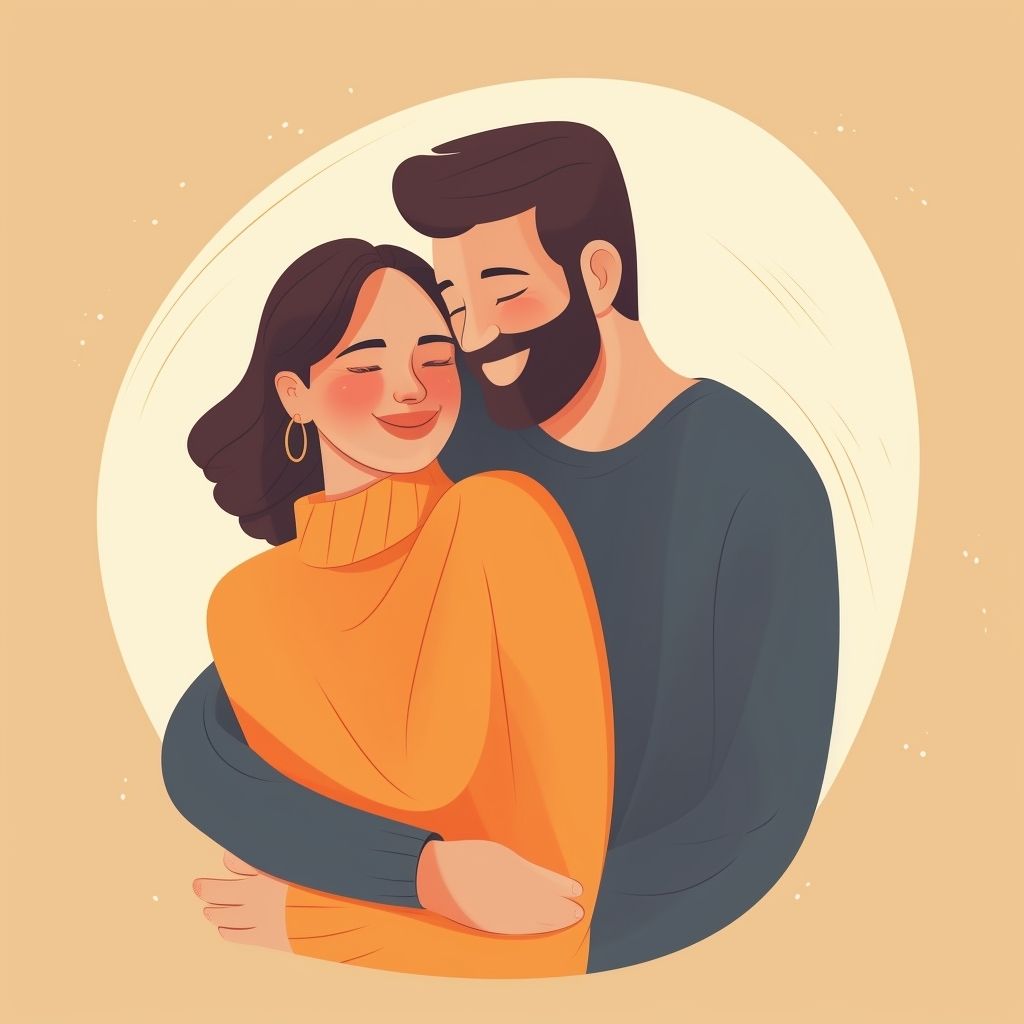Can OCD Affect Your Relationship?
✔Medically Reviewed by Saeideh Azizmohammadi, PhD, PsyD

We’ve all experienced moments of anxiety and worry. For most of us, these feelings are fleeting, and we can manage them with positive self-talk and coping mechanisms.
But…
For some people, anxiety and intrusive thoughts become chronic and overwhelming.
This can lead to obsessions, which are persistent and unwanted thoughts, and compulsions, repetitive behaviors or mental acts aimed at reducing anxiety.
This is called OCD.
In romantic relationships, OCD thoughts and behaviors become especially challenging, leading to a hard time for both people with OCD and their partners.
So, how can you tell your partner has OCD? How can you help and support them to overcome these challenges? And if you are diagnosed with OCD and are worried about your relationship, what should you do to have a healthy relationship?
In this blog post, we’ll explore these questions and more, helping you learn about OCD, its impacts on relationships, and ways to support your partner.
Before moving forward…
You should know that “ROCD” or “Relationship OCD” aren’t formal diagnoses, but they describe OCD focused on intrusive thoughts and compulsions related to your relationship or partner.
Living with OCD
Most people think OCD is just about being super neat, hating germs, and everything needing to be in perfect order or symmetrical.
This isn’t always the case for people with OCD, and actually some of them might be messy!
The real heart of OCD (obsessive-compulsive disorder) is what the name suggests: chronic obsessions (repetitive thoughts) like:
- A desire for things to be perfectly arranged and precise.
- Unwanted and disturbing ideas related to sex, religion, violence, or bodily functions.
- An intense fear of germs, dirt, or becoming contaminated.
- A fear of forgetting things, losing belongings, making mistakes, or doing something wrong.
- Anxiety about losing control and harming oneself or others.
- Preoccupation with bodily wastes
These obsessions lead to must-do compulsions (repetitive behaviors) like:
- Excessive hand washing, showering, or brushing teeth beyond recommended practices.
- A strong urge to order or arrange things in a specific way.
- Repetitive checking of things like locks, oven knobs, or appliances to ensure they are secure or off.
- Repetitive behaviors or mental acts performed to prevent harm to oneself or others.
- Holding onto seemingly worthless objects due to difficulty discarding them.
- Repetitive cleaning routines beyond what’s necessary for hygiene.
Think about your daily, normal fears or anxieties that happen sometimes, just passing moments. For people with OCD, these little fears and anxieties grow bigger and bigger, surrounding them like a giant worry that’s so overwhelming and disruptive it takes over their life. It sticks with them for a long time, long enough to become an obsession.
When this fear becomes uncontrollable and too powerful, they feel there’s no escape except for considering rituals and repetitive actions to cope. To run away from this discomfort, they turn to compulsions, even though they don’t truly want to do them. They feel they have to.
OCD is more than just liking things neat. People with OCD have repetitive thoughts (obsessions) that cause anxiety and they feel the need to do repetitive behaviors (compulsions) to manage that anxiety. These obsessions and compulsions can be very disruptive to their daily lives.
| Suggestion: OCD & MBTI – Does Your MBTI Type Predict OCD?
How OCD affects relationships

OCD can significantly impact romantic relationships. A specific type of OCD, known as Relationship OCD (ROCD), is characterized by intrusive thoughts and compulsions that center on your relationship. While ROCD isn’t a formal diagnosis, it’s a well-recognized subtype that can create significant challenges for both partners.
For those experiencing ROCD, their minds tend to latch onto things they perceive as imperfections in their partner or the relationship itself. These perceived problems might seem trivial to others and wouldn’t raise red flags outside the context of OCD.
| Discover: OCPD vs. OCD – Similarities and Differences
Constant self-doubt and uncertainty
Individuals with OCD in relationships may experience intrusive thoughts and anxieties that lead them to constantly question their feelings, their partner’s feelings, or the overall health of the relationship. This can take the form of repeated questions like:
- Am I happy with how things are going with my partner?
- Do I feel safe and loved by my partner, and do I feel the same way they feel about me?
- Am I giving up things that are important to me to be with them?
- Is there something missing in the relationship that’s making me doubt my feelings?
- Am I scared of being alone? is this relationship really right for me?
- What things about my partner bug me?
- Do I like someone else? Does this mean I don’t love my partner anymore?
- Has my partner been acting differently lately? I wonder if they’re seeing someone else..
- Deep down, would I be better off single or staying with my partner?
Imagine the constant self-doubt and uncertainty this creates, making it difficult to relax and enjoy the relationship.
Comparing the relationship to other relationships
People with OCD in relationships might find themselves constantly comparing their relationship to idealized versions or past relationships, leading to further anxiety and doubt. Social media can exacerbate this by showcasing seemingly perfect relationships, creating unrealistic expectations.
Seeking reassurance from partner or others
A common challenge is the constant need for reassurance from the partner or even others outside the relationship. This can take the form of repeatedly asking if they’re loved, if the relationship is okay, or if their partner finds them attractive. While seeking reassurance is understandable, it can create a strain on the partner and perpetuate the cycle of anxiety for the person with OCD.
Engaging in compulsive behaviors
To cope with the anxiety, someone with OCD in a relationship might engage in compulsive behaviors like constantly checking their partner’s social media or phone, seeking validation from friends or family, or engaging in mental rituals to neutralize intrusive thoughts. These behaviors may provide temporary relief, but ultimately hinder trust and intimacy in the relationship.
Difficulties with sexual performance
OCD can throw a wrench into a couple’s sex life. Intrusive thoughts and anxieties can make it hard to relax and get aroused. Worries about performance or feelings of disgust might creep in. This can lead to frustration and feelings of rejection for both partners.
| Suggestion: OCD and Asexuality – Reality vs. Social Misconceptions
Difficulty expressing emotion
OCD can make it hard to express your feelings freely and connect deeply with your partner. It’s like being afraid to be open and vulnerable because you’re worried your partner won’t understand or that your feelings aren’t valid. This can lead to unspoken resentment and a lack of open communication.
OCD can be a major roadblock in relationships. Here are some challenges it can bring:
Constant self-doubt and uncertainty about the relationship
Comparing your relationship to unrealistic expectations
Needing constant reassurance from your partner
Engaging in compulsive behaviors that damage trust
Difficulty with intimacy and emotional expression
| Related: OCD and Breakups
Challenges faced by partners of people with OCD

Being in a relationship with someone who has OCD can be incredibly rewarding, but it also comes with its own set of challenges. Here are some of the difficulties partners of people with OCD might encounter:
- Misunderstandings: The rituals and behaviors associated with OCD can be misinterpreted by the partner. Open communication is crucial to avoid misunderstandings and frustration. For example, a partner might see constant handwashing as a lack of trust in their cleanliness, when it’s actually driven by anxiety about germs.
- Emotional Strain: OCD can be emotionally draining for both partners. The person with OCD may struggle with constant anxiety and intrusive thoughts, while the partner might feel overwhelmed by the need to provide support or reassurance.
- Feeling Helpless: Witnessing a loved one struggle with OCD can be difficult. Partners may feel helpless, unsure of how to best support their partner’s recovery.
- Impact on Intimacy: OCD-related anxieties can make it difficult for someone with OCD to express emotions openly or engage in physical intimacy. This can be a source of frustration for both partners.
- Social Isolation: Fear of judgment or embarrassment related to OCD symptoms can lead the couple to withdraw from social activities. This can strain the relationship and limit shared experiences.
- Feeling Like a Caregiver: In some cases, partners may fall into the role of caregiver, constantly reminding their partner of compulsions or rituals. This dynamic can be unhealthy and create resentment.
| Also read about: OCD Panic Attacks
Supporting a partner with OCD

It can be tough to see someone you love struggle with OCD. Their worries and compulsions might feel confusing at times. Remember, they don’t choose these thoughts or behaviors. The best thing you can do is be there for them with a listening ear and a kind heart.
Talking openly about how OCD affects your relationship can bring you closer. Maybe there are ways you can help without enabling their compulsions. If you’re feeling overwhelmed, there’s no shame in seeking resources together. Therapy can be a great way for both of you to learn more about OCD and build tools to manage it. Remember, you’re a team, and with love and understanding, you can face these challenges together.
| Read more: Does OCD Get Worse at Night? – Myth or Reality?
Managing your OCD in your relationship

Your amazing relationship can sometimes feel overwhelming with OCD. Intrusive thoughts might make you question everything, but remember, they’re not facts. OCD often gets stuck in “what ifs” and worries about the future. Try to practice mindfulness and enjoy the present moments with your partner.
Talking openly and honestly with your partner about your OCD can be incredibly helpful. Sharing what’s going on in your head can clear up misunderstandings and create a space for them to support you.
When intrusive thoughts arise, don’t just accept them as truth. Ask yourself if they’re realistic or helpful.
Also, therapy can be a powerful tool for managing OCD. A therapist can teach you coping mechanisms and strategies to reduce anxiety and intrusive thoughts.
Also might be interesting:
HealWiser’s last piece of advice…
OCD in relationships can be a challenge, but it doesn’t have to be a roadblock. By being open with your partner, learning to manage your compulsions, and potentially seeking professional help, you can overcome any hurdle. Don’t forget that a strong relationship is built on communication, understanding, and a willingness to work as a team.
Sharing your experiences can provide valuable insights and emotional support. So…
…share your story with HealWiser and others in the comments section below this post.





